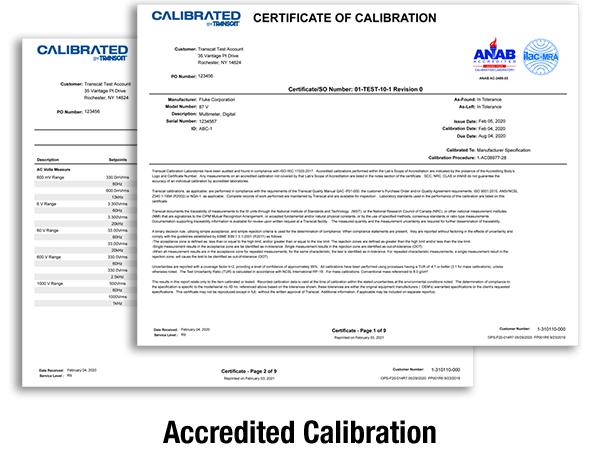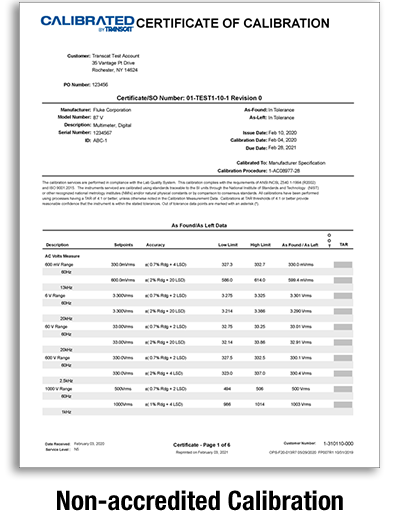Q: I have been receiving a calibration without data (or with data) from you. How does this change affect me?
A: The main differences in these two levels is that you will no longer see an accreditation logo on your certificate and there will no longer be a statement of traceability to SI units on the certificate. Otherwise your calibration will be the same as you have previously been receiving from Transcat. All our calibrations will follow the same processes by the same personnel using the same standards.
Q: If the calibration is the same, why will the certificate not have the accreditation logo on it?
A: As mentioned previously, the international standards, accrediting bodies, as well as NIST have maintained that to have traceability, measurement uncertainties must be provided and without those a calibration cannot be considered accredited.
Q: What if I need to have an accredited calibration?
A: We will still be able to provide you an accredited calibration. You will just need to specify that requirement at the time you place your order.
Q: Why are measurement uncertainties important?
A: Because there are no perfect measurements and no perfect instruments. There is always something unknown about every measurement. If you a performing any type of calibration on any device that will, in turn, be used to perform other process measurements, you will be passing along any potential error. This can be thought of as the domino effect: any uncorrected errors and all uncertainties in the calibration measurement process will be passed down to all the measurements made by the calibrated device.
Q: Does every calibration company have to follow these standards?
A: Yes, if they are accredited to the ISO/IEC 17025 standard and the measurement parameter is on their scope of accreditation. If you request an accredited calibration and the accrediting body logo is on the certificate, they must provide the measurement uncertainties. If a company is providing a calibration with an accreditation logo and it does not contain measurement uncertainties then it is in violation of their accreditation.
Q: What if I am not sure about what level of service I need?
A: You can feel free to contact us with any questions and one of our calibration specialists will be happy to discuss your requirements and provide any assistance that we can.
Back to top.






